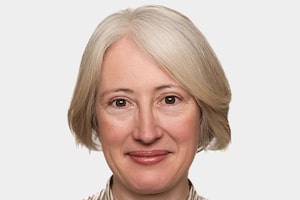Peter Power/The Globe and Mail
Frances Woolley is a professor of economics at Carleton University, where she teaches public finance
The local pet hospital has caring, professional staff, excellent quality of care, and short waiting times. But it doesn't come cheap.
My dog's latest health problem is cataracts, so I've been comparing the cost of canine and human cataract surgery.
It would cost about $4,000 to repair my dog's cataracts at the nearest animal hospital.
It's harder to put a price on human cataract surgery. In Ontario, an ophthalmologist is paid $441.95 per eye for the surgery itself. A basic intraocular lens - the artificial lens that replaces the lens damaged by cataracts - costs about $250 per eye. A 2010 study put hospital costs - everything from housekeeping to invoicing to nursing care – at $1059 for surgery on both eyes.
All together, these surgery, lens and hospital costs add up to about $2,500 for surgery to both eyes – substantially less than the estimated cost of canine surgery.
This price difference might just reflect the relative costs of performing canine and human surgery. Dogs must be anaesthetized before the surgery can be performed. A canine intraocular lens - the artificial lens inserted in the eye after a cataract operation - might be more expensive to manufacture than a human one. Because human eye clinics perform so many surgeries, overhead and other fixed costs can be spread across many patients, reducing average costs.
When markets are perfectly competitive, all price differences reflect cost differences. Firms competing for customers reduce prices until they are just covering their costs.
But health care markets not perfectly competitive. There are barriers to entry. Admission into veterinary and medical schools is restricted, and foreign-trained professionals undergo extensive scrutiny before their credentials are recognized. Veterinary medical associations set "fee guidelines" - suggested prices for services.
When health care providers are insulated from competition, they can charge above-cost prices - if that is what the market will bear.
Each individual pet owner is just one consumer among many, and she has little choice: either she pays the price quoted by the veterinarian, or foregoes treatment entirely. Pet owners have little market power. (This is less true in Vancouver, where some clinics specialize in providing basic, low-cost services).
Human health care consumers - in Canada at least - do have market power. The Canadian health care system is a "bilateral monopoly." Physicians and health ministries sit down together and negotiate a fee schedule. The price that is set will depend upon the bargaining power of physicians and health ministers. (Can physicians credibly threaten to move to the U.S. if their pay does not increase? Can politicians credibly threaten to impose legal or other sanctions on non-co-operative doctors?)
Governments can use their bargaining power to keep down the price of cataract surgery, and encourage practitioners to do more surgeries. In medical markets, government intervention can reduce prices and lead to increased social welfare.
More evidence on the power of government intervention to reduce costs comes from the prices charged to out-of-country patients by Canadian eye clinics. An American coming to Canada for a cataract operation would typically pay $2,500 to $3,500 per eye - considerably more than the reimbursement allowed under provincial health insurance plans.
Over the next 20 years, population aging will strain Canada's health care resources. Some might hope that private health care markets will reduce costs, easing the burden of care.
The animal hospital is the one place where Canadians can experience private medical care first hand. It has many advantages. But, in my experience, low cost is not one of them.
And about those cataracts - I figure the dog will manage just fine as long as he has seeing-eye people.
Follow Economy Lab on twitter
 Frances Woolley
Frances Woolley